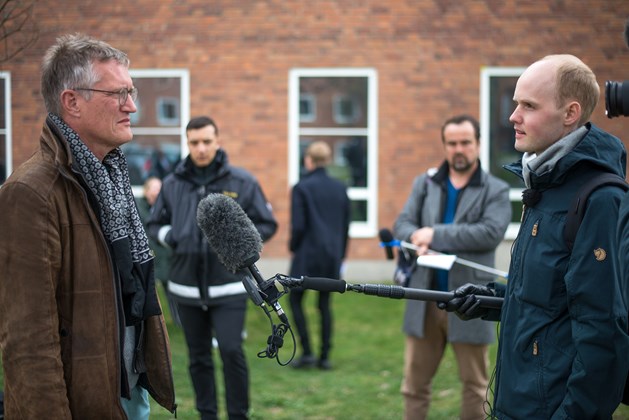Three tips for researchers who want to provide advice in a crisis

 Anders Tegnell at Folkhälsomyndigheten became one of the most well-known experts during the covid 19-pandemic in Sweden. Photo: Frankie Fouganthin/Wikimedia.
Anders Tegnell at Folkhälsomyndigheten became one of the most well-known experts during the covid 19-pandemic in Sweden. Photo: Frankie Fouganthin/Wikimedia.
In crises, politicians often turn to experts for help in making the right decisions. However, giving advice in crisis situations is difficult and often goes wrong. Philosopher Joe Roussos is interested in the relationship between knowledge and uncertainty in decision-making and has studied how different types of experts act in crises. Here, he provides three tips for researchers who want to give better advice in a crisis.
During a visit to the Hanaholmen cultural center in Finland, he was interviewed by the newspaper Kauppalehti and explained that something that became very clear during the COVID-19 pandemic was that experts and politicians live in different worlds. Politicians wanted to turn to expertise for advice, but it did not necessarily make decisions easier. On the one hand, experts were expected to provide answers quickly and advise on what to do. This is a situation that researchers are not accustomed to, and researchers from different disciplines may also disagree. On the other hand, decision-making requires consideration of more dimensions than the scientific one, namely moral and political dimensions, and there may be different positions among politicians.
- One can talk about following science, but ultimately it is the task of politicians to make decisions," says Joe Roussos to Kauppalehti.
Many researchers perform poorly in a crisis because they lack the right skills. Roussos points to researchers working in environments other than academia, whom he believes should be highlighted as a distinct type of expert. He cites the European Chemicals Agency as an example, where researchers work daily on the regulation of the chemical industry.
- They must develop new types of skills in their work, such as arguing with lawyers and giving presentations. Such skills are crucial to getting their messages across, and I think it should be considered a unique kind of expertise."
Joe Roussos gives three pieces of advice to researchers who want to contribute to good decisions in crisis situations:
- Accept the practical aspect of the role – you are to produce information that can be used in decision-making, even if some of your conclusions may be incorrect.
- Be humble. In a crisis, you will not be the only expert in the room, and others will see the problem from perspectives different from your own.
- Be aware that the data available in a crisis will not be complete, and that time is too short to meet all scientific requirements; just be clear about the uncertainty.
- I try in my research to suggest different ways in which experts can contribute to solving problems in crisis situations. Much can be solved through collaboration. However, if the political climate becomes too polarized, it becomes difficult. Large differences in how one sees the world undermine the conditions for decisions based on expert opinions. The result may be that problems simply cannot be solved, says Joe Roussos.
The full interview with Joe Roussos is behind paywall on Kauppalehti's website (in Finnish) >
Joe Roussos has also studied the use of models in decision making. In this talk he explains why experts and policymakers alike should not put too much trust in them.








